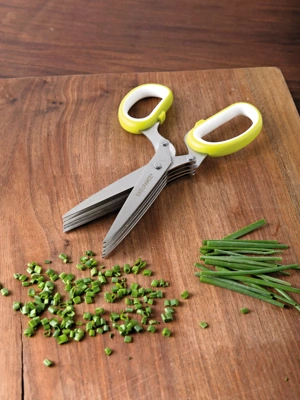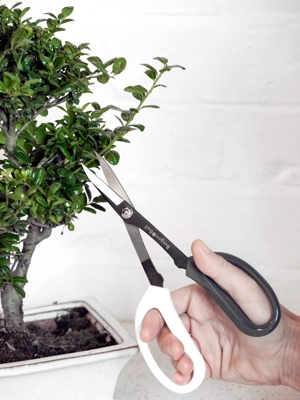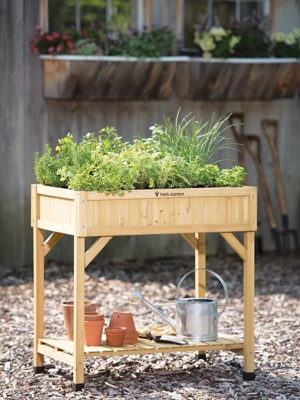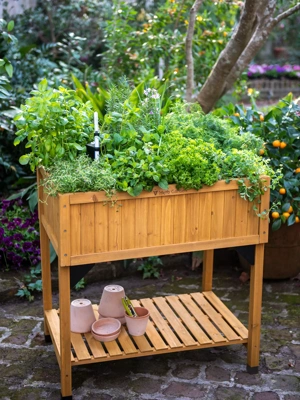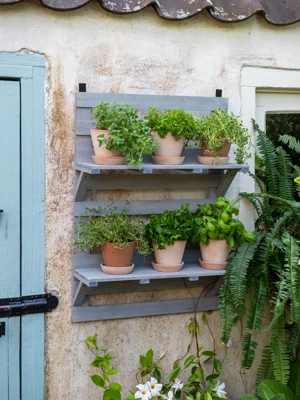Rosemary
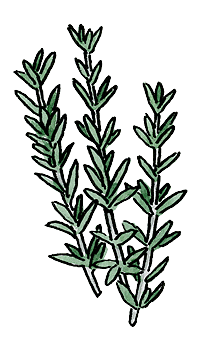
Rosemary is a perennial shrub so long as you live where temperatures generally stay above freezing with only short dips into the upper twenties. For the rest of us, rosemary must be considered either an annual or a potted indoor-outdoor plant. Its needle-like gray-green leaves make it an attractive houseplant in the winter, and after a few years it will begin to produce tiny blue flowers as well.
Rosemary is originally a Mediterranean plant — it likes full sun and though it does well in areas with high humidity, it thrives in dry climates, too. The soil needs to be fast draining and light. Do not add fertilizer to the soil. As a potted plant, rosemary has just two requirements: dont let the soil become waterlogged or dry out completely.
Rosemary can be grown from seed, but most gardeners start with a potted plant. Seeds must be very fresh and germination is variable at best.
If you live in a part of the country where rosemary wont survive the winter outdoors, it can be grown in a 12" wide clay pot that is 12" deep. Dont just fill up a pot with garden soil mix in plenty of sand and perlite to keep it light and well-drained. The pot can then be sunk right into the garden. Though there will be some capillary action through the bottom of the pot, keep an eye on the plant to make sure the root ball doesnt dry out. Dig up the pot when frost threatens and move the plant indoors until next spring.
To overwinter a rosemary plant, keep it on a sunny window in a cool room and water it weekly until March. Never let the soil get soggy. In March start giving it light waterings twice a week. Extra water is needed then because the plant starts to grow more vigorously as the suns rays get stronger. Many a good gardener has kept a nice rosemary plant happy all winter only to loose it to dryness in March or April.
Prune your rosemary yearly in the spring, removing branches that are growing in the wrong places or wrong directions it is a shrub, and needs to be shaped just as much as your roses or do. If you pinch growing shoots the plant will bush out, becoming more full and less scraggly.
Rosemary leaves may be frozen or air dried. Avoid drying them in a microwave or food dehydrator because the fragrant oils that impart rosemarys special flavor disappear into the air when heated. Fresh rosemary leaves are the most flavorful and much more tender. A good reason to keep a potted rosemary plant indoors.
Try chewing on a fresh leaf if you need a quick pick-me-up. In Europe, hikers sometimes chew some rosemary to freshen their breath and invigorate their body.
Last updated: 01/28/2021
Print this Article:
Related items
Get the Dirt
Stay up to date on new articles and advice. Please fill out the information below.


